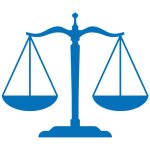Best Sustainable Finance Lawyers in Senegal
Share your needs with us, get contacted by law firms.
Free. Takes 2 min.
Or refine your search by selecting a city:
List of the best lawyers in Senegal
About Sustainable Finance Law in Senegal
Sustainable finance is an emerging area of law in Senegal that integrates environmental, social, and governance (ESG) considerations into financial decision making. The goal of sustainable finance is to support economic development while ensuring environmental protection and social well-being. In Senegal, sustainable finance plays a crucial role in advancing national climate objectives, supporting green projects, and facilitating investments that drive sustainable growth. Recognizing the importance of this field, the Senegalese government and regional organizations have introduced regulations and policies aimed at promoting responsible investing and financing of sustainable projects.
Why You May Need a Lawyer
Legal advice is often needed when navigating the complex landscape of sustainable finance in Senegal. Some common situations where you may require help from a lawyer include:
- Structuring green bonds or sustainable investment funds
- Complying with environmental and social due diligence requirements for projects
- Negotiating investment contracts for renewable energy or infrastructure projects
- Understanding tax incentives and regulatory benefits for sustainable investments
- Managing risks related to ESG compliance and reporting
- Handling disputes involving environmental obligations or project financing
- Advising international investors or organizations looking to fund green projects in Senegal
Legal professionals with expertise in sustainable finance can clarify your rights and obligations, draft necessary documentation, and ensure you are compliant with evolving regulations.
Local Laws Overview
Senegal is at the forefront of sustainable finance within West Africa, guided by both national priorities and regional frameworks such as those from the West African Economic and Monetary Union (WAEMU). The following key aspects summarize local laws relevant to sustainable finance:
- The Environmental Code of Senegal sets strict regulations for environmental protection and sustainable development, which financiers and investors must consider.
- The Law on Renewable Energies and related decrees promote investments in solar, wind, and other renewable energy sources, offering incentives for sustainable energy projects.
- Regulations from the Central Bank of West African States (BCEAO) are increasingly integrating green finance standards, impacting banks and financial institutions operating in Senegal.
- Public-Private Partnership (PPP) Laws include provisions for financing infrastructure projects with social and environmental benefits.
- Disclosure and Reporting Requirements are being strengthened, requiring companies, particularly listed firms and large investors, to report on ESG factors and climate-related risks.
Understanding these laws is essential for anyone seeking to engage in or support sustainable finance initiatives in Senegal.
Frequently Asked Questions
What is sustainable finance?
Sustainable finance involves making financial decisions that take into account environmental, social, and governance (ESG) factors. It aims to support investments that have positive long-term impacts on society and the environment.
Are there specific regulations for green bonds in Senegal?
Yes, Senegal follows WAEMU guidelines for green bonds, and the BCEAO has started issuing framework guidelines for green financial instruments, including reporting requirements and eligible project lists.
Who oversees sustainable finance in Senegal?
Oversight comes from several bodies, including the BCEAO, the Ministry of Environment and Sustainable Development, and sectoral ministries depending on the project type.
What incentives are available for sustainable investments?
Incentives can include tax breaks, reduced import duties on green technologies, and preferential access to certain government-supported finance or guarantees for sustainable projects.
How can I structure a public-private partnership for a sustainable project?
PPP laws in Senegal allow for sustainable projects, but require compliance with both financial and environmental regulations. Legal counsel can guide you in drafting and negotiating contracts that meet all requirements.
Is ESG disclosure mandatory for companies in Senegal?
While it is not yet mandatory for all companies, listed firms and certain financial institutions are increasingly required to disclose ESG information, especially if they seek to attract sustainable finance.
What legal risks exist in sustainable finance?
Risks include non-compliance with local and international standards, misrepresentation of green credentials (greenwashing), and contractual disputes related to ESG performance commitments.
Can foreign investors participate in sustainable finance projects?
Yes, Senegal welcomes foreign investment in sustainable sectors, as long as investors comply with local regulations and obtain necessary permits or approvals.
Do banks in Senegal offer green loans?
Some banks and financial institutions have started offering green loans and financing products aimed at supporting renewable energy, waste management, and social impact projects.
How can I ensure my project meets sustainable finance criteria?
Engage an experienced legal advisor to review applicable laws, undertake due diligence, and ensure your project complies with all environmental and social requirements in Senegal.
Additional Resources
If you are seeking more information or support on sustainable finance in Senegal, the following resources and organizations may be helpful:
- Ministry of Environment and Sustainable Development of Senegal
- Ministry of Economy, Planning and Cooperation
- Senegalese Agency for the Promotion of Investment (APIX)
- Central Bank of West African States (BCEAO)
- West African Development Bank (BOAD)
- African Legal Support Facility (ALSF)
- Relevant industry associations and environmental NGOs working on sustainable development
Next Steps
If you need legal assistance in the field of sustainable finance in Senegal, consider the following actions:
- Identify your specific needs, such as compliance, contract drafting, or dispute resolution
- Search for local law firms or legal professionals with experience in sustainable finance and ESG matters
- Prepare relevant documentation about your project or investment for an initial consultation
- Ask about the lawyer's experience with sustainable finance, green bonds, and environmental regulations in Senegal
- Use information from government resources and professional associations to select a qualified advisor
- Arrange a meeting to discuss your goals, legal obligations, and seek guidance on the best course of action
Taking timely legal advice is essential to navigating sustainable finance successfully and ensuring your project or investment meets all regulatory requirements in Senegal.
Lawzana helps you find the best lawyers and law firms in Senegal through a curated and pre-screened list of qualified legal professionals. Our platform offers rankings and detailed profiles of attorneys and law firms, allowing you to compare based on practice areas, including Sustainable Finance, experience, and client feedback.
Each profile includes a description of the firm's areas of practice, client reviews, team members and partners, year of establishment, spoken languages, office locations, contact information, social media presence, and any published articles or resources. Most firms on our platform speak English and are experienced in both local and international legal matters.
Get a quote from top-rated law firms in Senegal — quickly, securely, and without unnecessary hassle.
Disclaimer:
The information provided on this page is for general informational purposes only and does not constitute legal advice. While we strive to ensure the accuracy and relevance of the content, legal information may change over time, and interpretations of the law can vary. You should always consult with a qualified legal professional for advice specific to your situation.
We disclaim all liability for actions taken or not taken based on the content of this page. If you believe any information is incorrect or outdated, please contact us, and we will review and update it where appropriate.
Browse sustainable finance law firms by city in Senegal
Refine your search by selecting a city.









